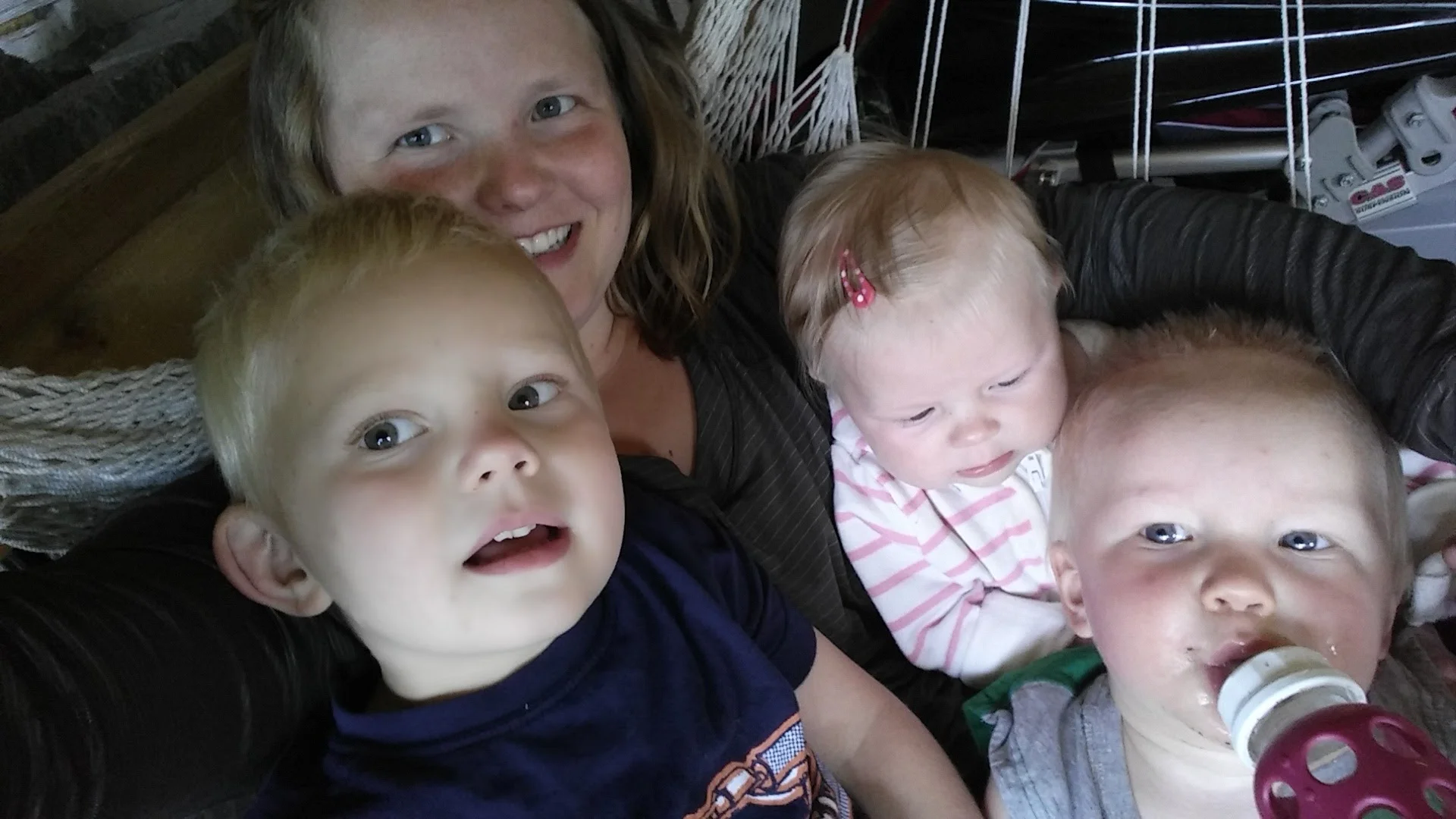Elias was 4 and Andre was 2.5 when they watched me work on their sister who had died. They saw her, they heard me screaming, they saw the cops and the firetrucks. They were shuffled out the house with their eyes covered up. They saw their mom cry every time they went to the cemetery. They saw her sit on the couch and bawl many days. These precious boys had their innocent childhood tinged with grief at way too young of an age. Even though kids are resilient, it makes me sad many times. That my kids have to learn about death and loss so early in their lives.
It’s very heartbreaking and difficult to watch your kids suffer and miss their sister as well. Just like I knew I needed help getting through this, I wanted to give our kids the best possible chance they can to learn how to live with this, and process what happened. So we brought them to play therapy. It’s a way for children to work through their grief, with a trained therapist who pays attention to the way they play.
Children often play to make sense of what happened. I would often find our kids along with their cousins playing “Aria dead” where one would lay on the ground pretending to be dead. It was very painful to watch, but from discussing with the therapist, I knew that this was a way a child worked through their trauma.
Other ways kids can learn to process grief is through drawing or artwork. Giving them the space and the tools to use their imagination and process their grief.
There is a book called “The Whole Brain Child”. It had a section that talked about discussing traumatic events with kids. As adults we want to just tell them it’s okay, don’t worry about, let’s just forget about it, or don’t talk about that. You don’t want to make a horrible situation worse.
But children will fill in the gaps if you don’t. This book had an example of a car accident, where someone the child loved got injured. The child was very concerned about that person, and instead of just telling the child she’s fine. You can walk through what happened. Walk through the events, and talk about it with your child. Giving them the chance to speak, gives them the ability to process their emotions, and what happened.
There were a few moments that stand out in my mind, of things Elias said that were so painful to hear. I was in Florida with some friends, and Justin texted me that he was visiting with the boys about our new baby that was going to be coming in a few months. Justin asked them if they were excited, and Elias said, “Yeah, but Brilynn is going to have to die before the new baby can come.” I just lost it. There are so many things you have no idea that your child believes or thinks unless they voice it. To Elias, his sister died right before the new baby was born. So of course it would happen again, his sister would have to die before the new baby could be born.
I feel like death in our family brought out the fact very clearly that all emotions are okay in our house. It doesn’t mean we always deal with them well, but the ability to talk about our emotions and how we are feeling is very important. Also, in therapy with a different therapist, she was teaching Elias emotions and how we can name what we are feeling inside. Most of the time kids don’t have a clue what emotion they are feeling, some adults don’t know that either. It really needs to be taught, voiced, and noticed.
It’s really hard to know what behaviors your child is exhibiting are grief related or age related. It’s so hard to know what to do. So many behaviors can come out in different children, and they can respond so differently. Kids also understand the level of loss at different levels at different ages of their life. I think the age a child can really comprehend death as a final thing is around age 6 or 7. So there could be periods of fallback, where your child is having a more difficult time because they can understand a deeper level now.
Children are so resilient, but it’s so painful that they have to deal with such a traumatic event and horrible thing. The one thing I hope to give them, is the ability to know that it’s possible to to live a great life even after really hard things happen. I want them to know that life is a full spectrum of emotions, and I want to teach them to not be afraid of love and loss, because the scars are a beautiful testament to the love that you had and still have for the one you have lost.

